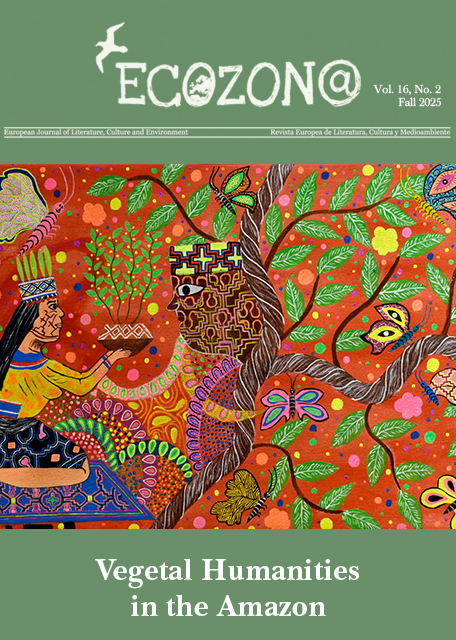From the Serengeti to the Bavarian Forest, and back again: Bernhard Grzimek, Celebrity Conservation, and the Transnational Politics of National Parks
DOI:
https://doi.org/10.37536/ECOZONA.2022.13.2.4525Parole chiave:
Grzimek, conservation, celebrity, transnationalism, National ParksAbstract
This short piece focuses on the work of the German “celebrity conservationist,” Bernhard Grzimek, situating it in the context of historical and contemporary debates about the political and ecological importance of national parks. Grzimek’s role in the creation of Bavarian Forest National Park may not be as well-known as his public ministrations on behalf of the wild animals of the Serengeti, but in several ways his work in and for these two national parks, engaging with the fraught politics of the period, was intertwined. The essay looks at some of these overlaps, using them to make the case for national parks as complex geopolitical formations in which human and animal interests alternately collide and converge. The essay also makes the case for national parks as multi-scalar entities that need to be understood – politically and ecologically – in both local and global, both national and transnational terms. Finally, the essay cites the multiple roles of Grzimek to re-examine the ambivalent role of the celebrity conservationist as a media spokesperson and publicity-conscious advocate for the world’s wildlife.
Downloads
##submission.downloads##
Pubblicato
Fascicolo
Sezione
Licenza
Authors who publish with this journal agree to the following terms:
a) Authors retain copyright and grant the journal right of first publication with the work simultaneously licensed under a Creative Commons Attribution License that allows others to share the work with an acknowledgement of the work's authorship and initial publication in this journal (CC BY-NC for articles and CC BY-NC-ND for creative work, unless author requests otherwise.
b) Authors are able to enter into separate, additional contractual arrangements for the non-exclusive distribution of the journal's published version of the work (e.g., post it to an institutional repository or publish it in a book), with an acknowledgement of its initial publication in this journal.
c) Authors are permitted and encouraged to post their work online (e.g., in institutional repositories or on their website) prior to and during the submission process, as it can lead to productive exchanges, as well as earlier and greater citation of published work (See The Effect of Open Access).










